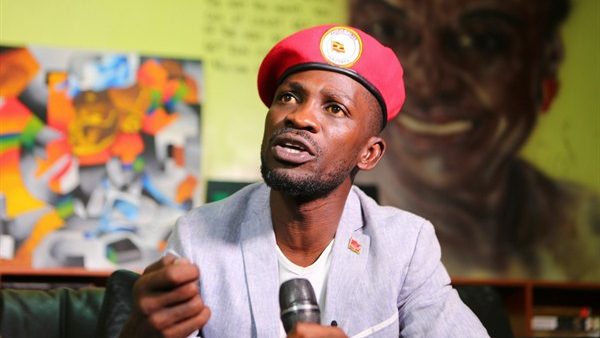Today at WPR, we’re covering the civil war in Sudan and how the war in Ukraine is fraying the global security order.
But first, here’s our take on today’s top story:
Uganda: Bobi Wine, Uganda’s top opposition leader, said Thursday that he was seized at the airport and placed under house arrest after returning to the country from abroad. Authorities denied the claim despite a history of crackdowns on the opposition in Uganda. (New York Times)
Our Take: In Uganda’s presidential election two years ago, Wine was considered the biggest threat to the decades-long authoritarian rule of President Yoweri Museveni, who has held onto power over the years by cracking down on successive opposition figures and their supporters, as well as activists and journalists.
As Sophie Neiman has written in a series of recent articles for WPR, Museveni’s intimidation tactics have long included forced disappearances and political violence. In recent years, those crackdowns have become increasingly violent and increasingly common, lasting long after the election cycle.
The continued repression in Uganda under Museveni has largely been ignored by the U.S. and Europe because Museveni has sold himself as an important security partner for countering armed groups in the region, particularly in Somalia and eastern Congo. Much like other authoritarian leaders, however, Museveni has often been as much a cause of regional instability as a solution to it.
Looking ahead, the main question is what will happen when Museveni’s rule ends. His son has said he will stand for the presidency in 2026, but it’s unclear if Museveni will actually relinquish power that early. Regardless, when the transition of power does inevitably come, Museveni will leave behind a personalistic regime with a high likelihood of fracturing without him, as it’s not clear that his son—nor anyone else—can hold it together.

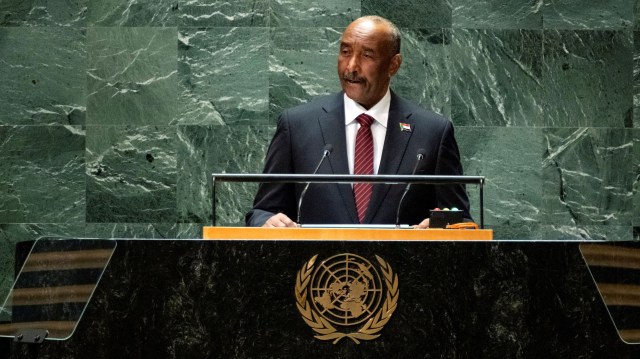
The U.S. Needs to Step Up in Sudan
When Sudan’s de facto military ruler, Gen. Abdel Fattah al-Burhan, addressed the U.N. General Assembly last month, he warned that the ongoing conflict in his country was a threat to the region and to broader international peace and security.
Invoking the same language that the U.N. Security Council uses to justify the multilateral interventions it authorizes might seem an odd move from a leader who this summer declared the head of the U.N. mission in Sudan persona non grata.
But, as Cameron Hudson writes in today’s briefing, perhaps Burhan realizes something that the international community has so far missed or chosen to ignore: If concerted action is not taken soon to end Sudan’s devastating internal conflict, it could result in the collapse of the country.
The War in Ukraine Is Fraying the Global Security Order
In the past week, two major crises have unfolded:
- In the South Caucasus, more than 100,000 ethnic Armenians have fled their homes since Azerbaijan seized control of the Nagorno-Karabakh region in a lightning military advance on Sept. 19, an exodus many observers have called an “ethnic cleansing.”
- Serbia started amassing troops on its border with Kosovo, ostensibly in response to skirmishes between Kosovo police and Serbian paramilitaries that left one police officer and three armed Serbs dead.
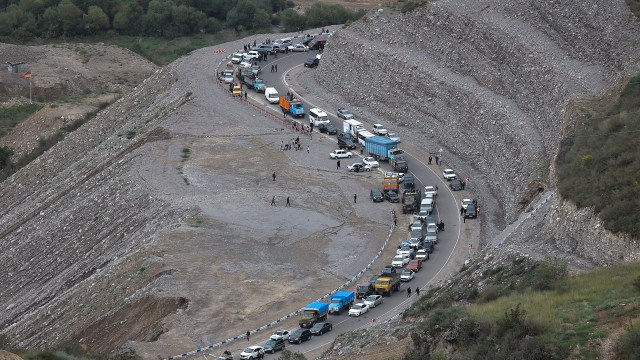
As columnist Paul Poast writes, the dual crises unfolding in Nagorno-Karabakh and Kosovo, while concerning in and of themselves, also point to how the war in Ukraine is fraying the global security order.

In return for normalizing relations with Israel, Saudi Arabia is demanding a U.S. security guarantee and assistance on its nuclear energy program.
This week, we asked: Should the U.S. meet those demands?
The results? 66% of respondents said “No.”

The Nobel Peace Prize was awarded to Narges Mohammadi, an Iranian human rights activist and advocate for women’s rights and democracy. She is currently imprisoned in Iran.
Columnist Paul Poast wrote last year that despite a variety of flawed decisions in the history of the Nobel Peace Prize, the prize continues to inspire hope and, as a result, deserves to be lauded.
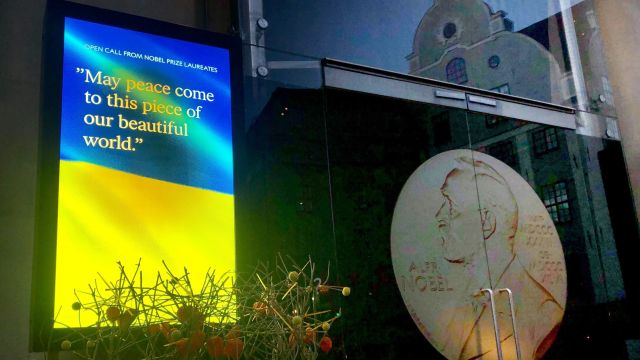
Despite All the Controversies, the Nobel Peace Prize Still Matters
Oct. 14, 2022 | The awarding of the Nobel Peace Prize is a celebration of what humankind aspires to, even if we often do—and perhaps always will—fall short. Read more.
Amid fallout from disputed elections in June, Sierra Leone’s government is facing political paralysis that could threaten hundreds of millions of dollars of aid from the United States. In protest of the elections, the opposition party’s legislators have refused to sit in parliament, stalling action on the government’s legislative agenda.
According to Sierra Leone’s electoral commission, incumbent President Julius Maada Bio was reelected in June’s election, but both internal and external observers have questioned the credibility of the results. Jamie Hitchen broke down the irregularities in an August briefing:
In Sierra Leone, Bio’s Second Term Begins Under a Cloud
Aug. 21, 2023 | Sierra Leone’s president, Julius Maada Bio, will begin his second term under a cloud after a contested election. Read more.
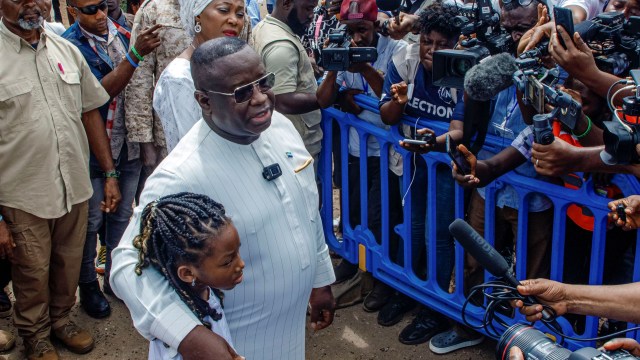
Upcoming Elections
Liberia heads to the polls for a general election on Oct. 10. Read Jacien Carr’s preview of President George Weah’s reelection chances.
More From WPR
- Judah Grunstein on the U.S.-France divide over secularism.
- Frida Ghitis on Poland’s upcoming elections.
- Jakob Cansler on the geopolitics of Broadway musicals.
- Alexander Clarkson on the potential post-American world.

